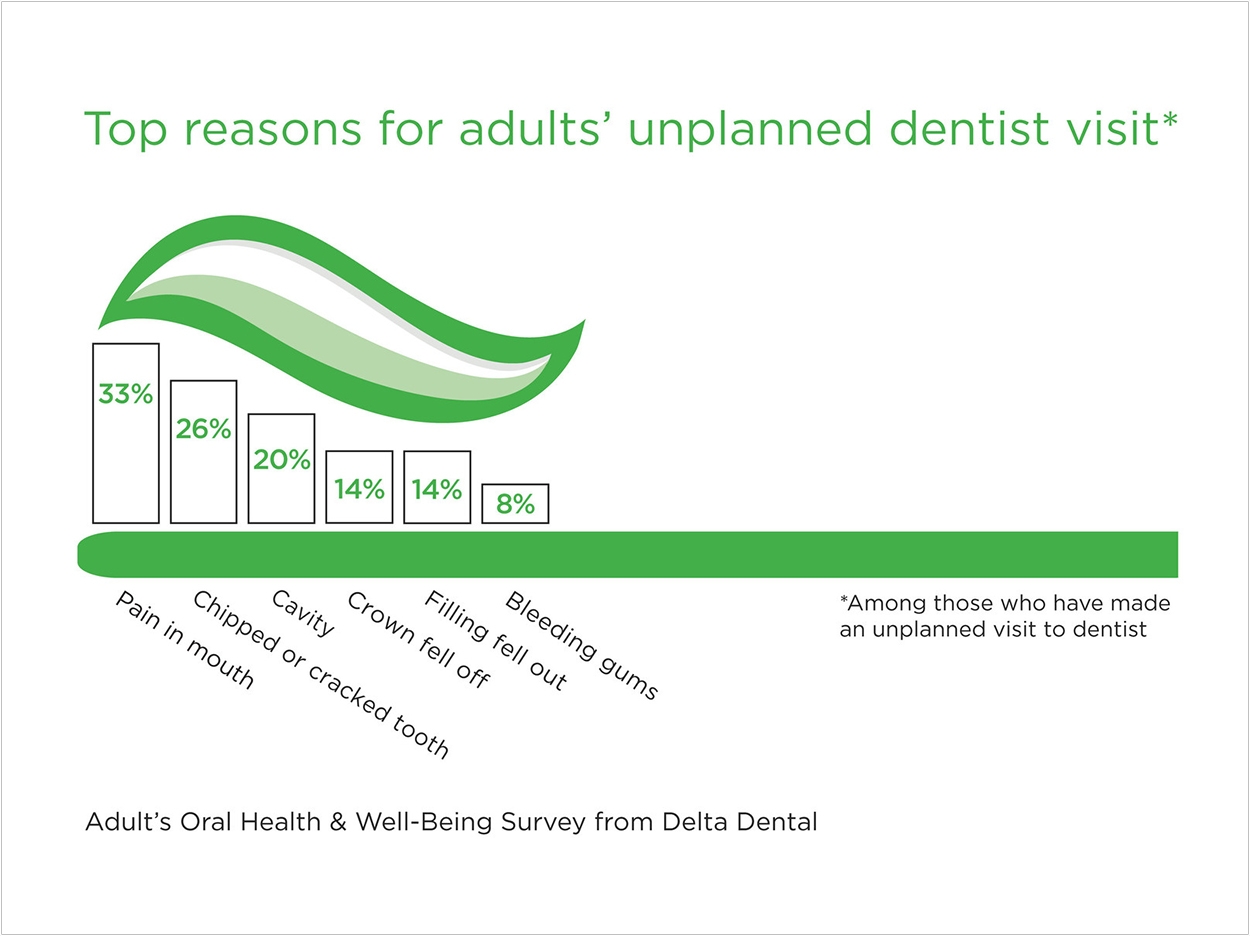
Most adults don’t seek out proactive dental care, and they visit the dentist less than they should, according to a national survey by Delta Dental. As a result, the company says, many adults suffer from oral health detriments. For example, 57% of Americans have made an unplanned visit to the dentist, with oral pain (33%) cited as the leading cause.
A chipped or cracked tooth (26%), a cavity (20%), a lost crown or filling (14%), and bleeding gums (8%) also prompted these patients to make unexpected appointments. Plus, the survey indicates that 42% of Americans typically visit a dentist less than once a year.
“A healthy smile is a valuable asset in everyday life but requires proper care, including to help prevent gum disease,” says Joe Dill, DDS, MBA, Delta Dental Plans Association’s vice president of dental science. “Making an appointment for a dental exam is a positive step to safeguard the health of your smile.”
Dill encourages clinicians to make sure their patients visit them regularly as part of their preventive oral healthcare. He also notes that these unplanned visits can be avoided if patients take better care of their oral health at home. Clinicians should share these strategies with their patients as well:
- To prevent oral pain: Brush and floss daily, eat a healthy diet, and avoid tobacco products.
- To prevent chipped or cracked teeth: Avoid chewing ice and hard candies, and never use your teeth as a substitute for the right tool.
- To prevent cavities: Remove plaque with daily flossing and brushing, reduce consumption of sugary foods and beverages, and chew sugar-free gum that includes xylitol.
- To prevent crowns and fillings from falling out: Avoid hard and sticky foods such as caramels and hard candies.
- To prevent bleeding gums: Floss and brush with a fluoride toothpaste daily, eat a balanced diet, and visit the dentist regularly.
Related Articles
New Emergency Appointments: An Interruption or an Opportunity?
Traumatic Dental Injuries: Emergency Assessment and Treatment
Smartphone App Helps Identify Dental Emergencies












